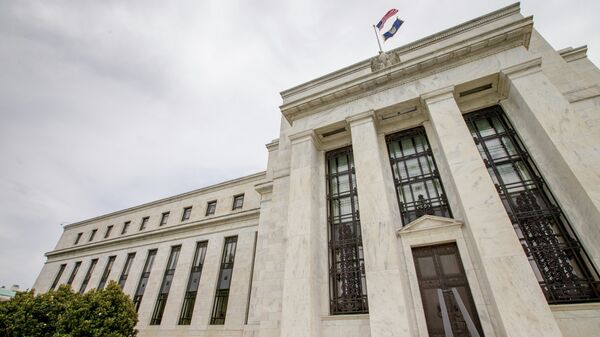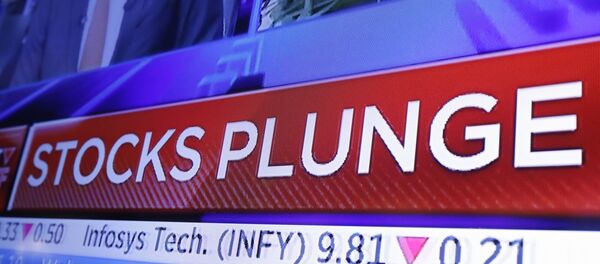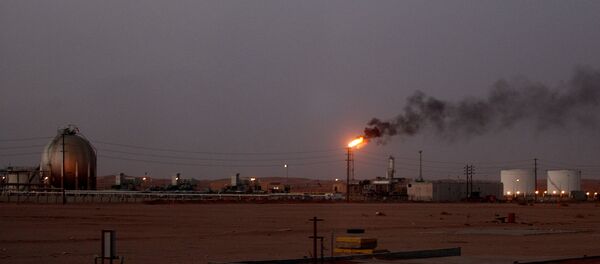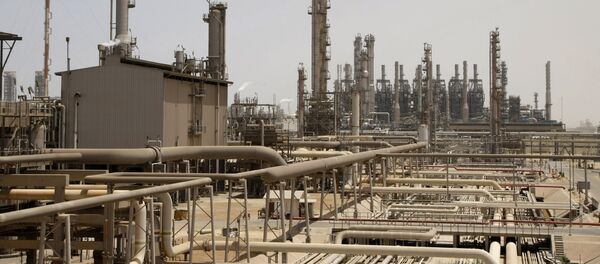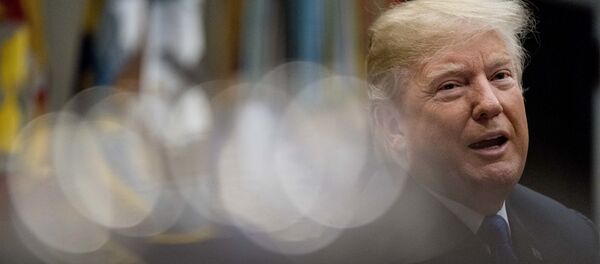However, financial policy analyst Daniel Sankey told Radio Sputnik's Loud and Clear Thursday that despite appearances, the Federal Reserve, a nominally independent and objective financial policy body, and the president are on the same side — that of billionaires, not "the little guy."
Sankey said the market's volatility is tied to a number of things. One of the most important factors is that the Trump administration is "upending about 70 years of US policy on global trade and global economics." He told hosts John Kiriakou and Brian Becker that after World War II, the US dreamed of having a "global integrated capitalist empire with the United States at the middle, where trade flowed without state intervention, without tariffs, without regulations, where capital was king, and it would kind of spread throughout the globe."
"The Trump administration is confounding that vision," Sankey said, noting its "instituting policies that are inconsistent with" that vision.
The biggest change Sankey identified was the tariff war "against China, but against many other long-time US allies in Europe as well," which he said has created a tremendous amount of uncertainty in the market.
"Investors aren't really sure exactly where things are going to go. The reason why we're seeing it bounce around is they're basically deciding, or trying to decide, whether they think these economic changes are going to be profitable in some respects or if they're gonna hurt things. And I think they are of a divided mind: some are deeply concerned this will hurt their ability to profit, hurt their ability to accumulate capital, and some see it as a potential opportunity."
"On the tail of that is the [Federal Reserve's] decision to start raising interest rates, which Trump has been very publicly against," Sankey said, noting the president had "viciously" attacked the Fed. "The reason why is, he's not stupid; he knows that raising treasury [bond] prices will cause a lot of capital to flow out of the stock indices, like the Dow Jones and the NASDAQ, and into these treasuries, because now that raise in rates will produce more profits. Treasuries are more safe, they're more stable, and investors are more eager to hedge their bets and get some of their money into a more safe investment, and that's what treasuries are being."
But Sankey said that's exactly why Trump is attacking the Fed: "He wants to keep [interest rates] low so he can artificially divert all of that capital into the stock markets and keep them at this bloated, over-inflated pricing that they've had, really, ever since the kind of bailout of the banks, when the acceleration of the stock market started."
Sankey said that the market's "volatility shows that uncertainty," making it difficult to give sound advice to small investors. "If these big hedge funds and investors aren't really sure exactly where things are gonna go, the little guy certainly isn't going to know." And those little guys, he noted, have a lot to lose.
Sankey predicted the "air" would continue to be "let out of the tires," and the stocks would continue to fall, but that whatever the market does, "these large investors will be fine" and find other ways to profit from the crisis, while "the little guy has to risk a whole lot more" with little opportunity to gain.
Sankey mused at a rare "moment of honesty" from "the big ruling-class papers" in a Thursday Wall Street Journal editorial titled "Trump Flunks Fed Politics," in which the author effectively said, "‘Look, the Fed will do what you want it to; it's an extension of state power, it's a puppet, its independence is a mirage. But you have to let people think that it's independent and that it's making its own decisions without you. So if you go out there and publicly tell it to do something and it does it, that ruins the idea that it's somehow this objective economic institution,' which I think it most certainly is not."
"The Fed is a powerful political institution," Sankey said. "It's used for political ends, it has political gains, and it is largely at the beckon call of state power. So I think the Wall Street Journal's kind of honest where they say, ‘Look, Trump, it's gonna do whatever you want anyway, it always has. Just let the little guy think that it has independence and don't be so public about it, because when you are, then the Fed naturally has to push back.'"
"But it's all political theater, you know? They go to the same country clubs; their kids go to the same schools; when they see each other in the hall, in the office, they shake hands and smile. The truth is that this fight, this confrontation, is a mirage for political theater. They are both on the side of billionaires, they are both on the side of the people the Wall Street Journal represents, and they are working together to make their lives as easy as possible and as profitable as possible."
Looking at the bigger picture, Sankey predicted a downturn in stock prices and that "the volatility will continue and will grow stronger." He predicted no change in Trump's policies, which "create an unstable environment" for companies to make profit in. He noted that the long-term consequences of the tariffs remain to be seen.
